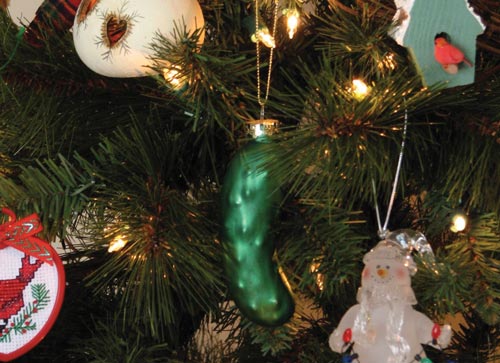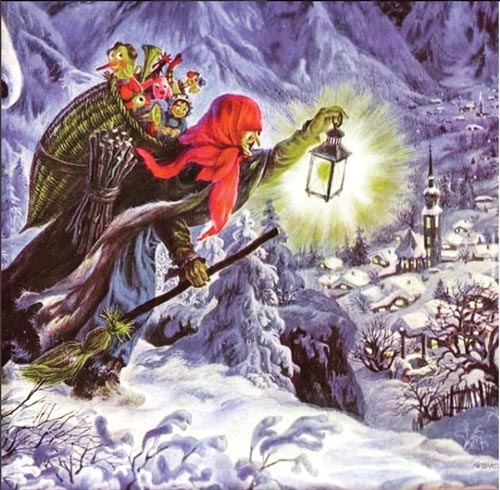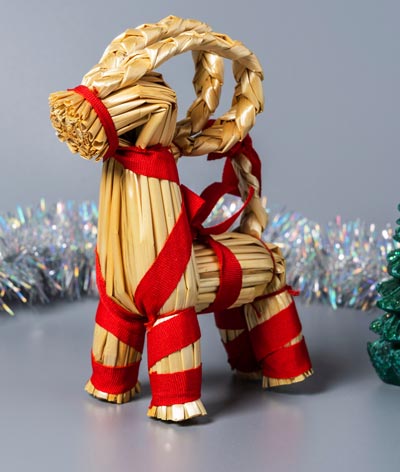Following my own 11 years of tradition of writing articles in this publication (I cannot believe it has been that long), there is no real estate talk in December but some fun Christmas traditions.
I want to thank everyone who reads my articles and all my amazing clients. Wishing you all a very Merry Christmas and Happy New Year.
PICKLE IN THE TREE — GERMANY
The Christmas tree tradition embraced around the world today is believed to have started in Germany back in the 16th century. One Christmas tradition in Germany is to hide a pickle somewhere within the branches of the tree, and give a gift to whichever child in the household finds it. Some claim that the tradition may not be German after all. One legend says that the Christmas pickle originated in Spain when two young boys were held as prisoners inside a pickle barrel. The heroic Saint Nicholas rescued the boys and brought them back to life.
ROLLER SKATE MASS — VENEZUELA
In the Venezuelan capital of Caracas, swathes of citydwellers make their way to mass on roller skates every year on Christmas morning. The tradition is now so well established that many of the city’s streets are closed to traffic from 8 a.m. so that the skating congregation can get to church safely. It’s even said that children will sleep with one lace from their skates tied around their toe, the other skate dangling from the window so that their friends can wake them up with a friendly tug on the lace.
BEFANA THE WITCH — ITALY
Forget Santa and Dec. 25 when in Italy, as all the action takes place on the eve of Jan. 5. According to folklore, an old woman named Befana visits all the children of Italy to fill their stockings with candy and leave them presents if they’ve been good. Just like Father Christmas, Befana enters through the chimney and is left treats by the children who live there — typically wine and local delicacies.
FRIED CATERPILLARS — SOUTH AFRICA
When you think of Christmas food, mince pies and turkey are often high on the list. In South Africa, however, it’s the creepy crawlies that local children look forward to. Festive fried caterpillars may seem like one of the more unusual Christmas traditions, but these caterpillars aren’t just the run-of-the-mill variety you find in the garden. The Pine Tree Emperor Moth, or Christmas caterpillar, is covered in very festive hues — giving all who swallow a little extra luck in the coming year.
THE ALTERNATIVE CHRISTMAS TREE — NEW ZEALAND
Thought all Christmas trees were created equal? Think again. The Kiwis are all about the Pohutukawa, a beautiful tree that is native to New Zealand with gnarled roots and bright crimson flowers. The first mention of the Pohutukawa tree came from Austrian geologist Ferdinand von Hochstetter in 1867. He described locals decorating their churches and homes with the brightly-colored branches at Christmas.
Today, the Pohutukawa tree is a recognized symbol of Christmas around New Zealand and is featured on Christmas cards, decorations, and even in the Christmas carols that children sing at school.
THE YULE GOAT — SWEDEN
The Christmas tradition from Sweden may be the oldest still celebrated out of them all. The Yule Goat dates back to at least the 11th century, where there are mentions of a man-sized goat figure, led by Saint Nicholas, who had the power to control the devil.
The Yule Goat has changed quite a bit throughout history. In the 17th century, it was popular for young men to dress as the goat creature and run around pulling pranks and demanding gifts. By the 19th century, the goat became the good guy — a giver of gifts. Instead of Father Christmas, men in the family would dress up as the goat and give gifts to the entire family.
Today, the man goat is no longer and the Yule Goat has taken its place in modern history as a traditional Christmas ornament on trees throughout Sweden. In the larger cities, giant versions of these goat ornaments are created out of straw and red ribbons.
Lorraine is a Multi-Million Dollar producing agent, has been a full-time Realtor for over 13 years, is an Associate Broker of KOR Properties, a Certified Negotiation Specialist, and is on the Professional Standards Board. You can reach Lorraine at (602) 571-6799.







